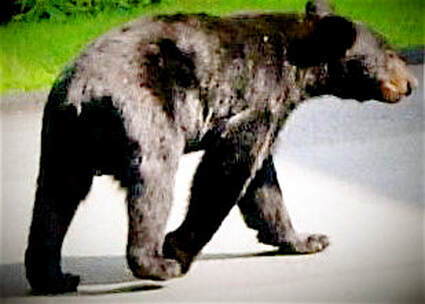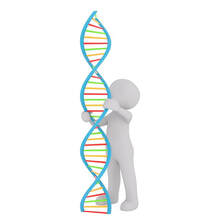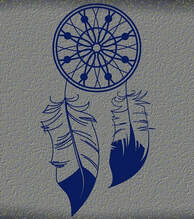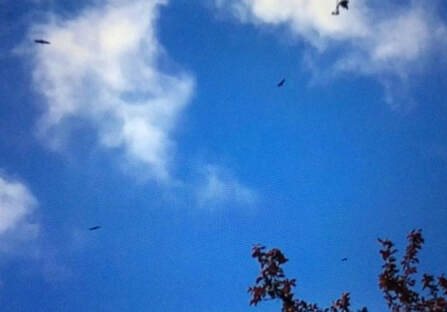|
Do you suspect that you have Native American ancestry? Does your DNA “prove” that ancient family story? Are you “part Cherokee?” Was your great, great-grandmother a princess? With the rise of DNA testing companies mirrored by a hostile political landscape, one way that some organizations have lined their pockets has been to play to a person’s emotions regarding fragmented family stories of Native American (especially Cherokee) ancestry. With the 2020 election looming, the continued caricature, mocking, misunderstanding, and ignorant dismissal of our people and way of life is certain. Here are some thoughts on genetic testing that I hope will stimulate intelligent thinking on the subject for the genuinely curious. 1. Does DNA testing or blood quantum verify Native Identity? No. DNA testing is irrelevant to tribal affiliation and blood quantum is a colonial invention, having little or nothing to do with how most reasonable Natives view themselves within the context of their tribe or communities. Granted, a host of tribal persons still use race (despite centuries of race-mixing) as a pretext for their own arguments regarding “we versus them,” which is essentially reverse discrimination, but most recognize and acknowledge that Native identity is less about race and more about common relations. FYI – the United States government classifies only three entities by blood quantum: Equestrians, canines, and Native Americans. Now, I am at one with the animals so I don’t mind being compared to horses and dogs, but the criminality in this is the obvious distinction between Native persons and other humans. There is a long, complicated, and emotionally unforgiving story behind this concept that has to do with genocide and patriarchal governments. 2. Is there a difference between race and ethnicity? Yes. Race, for the most part, has to do with a person’s physical traits—especially skin color. Technically speaking, I am of mixed-racial origin. My pigmentation, however, is white; therefore, my race is white. Ethnicity is about ancestry and the culture with which one identifies. I am of Caucasian and Cherokee Indian ancestry. I claim both. From a spiritual and communal perspective, I identify more with my Cherokee ancestors. They reached out to me. I am not “part” Cherokee; I am Cherokee. 3. So, DNA is not relevant to tribal affiliation? Again: no. I am not qualified to go into detail regarding DNA and genetics. Yet, in simplest terms, individuals receive one-half of each parent’s DNA. Mitochondrial DNA (mtDNA) comes from our mother, the Y-Chromosome (YCh) from our father. These are the two main genetic markers used in Native American DNA analysis. Essentially, due to race-mixing over the past couple of centuries, mtDNA and YCh’s sometimes do not get past the generational lines to show up in Native American (in my case, Cherokee) DNA analysis. They get “washed out,” depending on the gender and geographic location of the ancestor(s). Moreover, Native identity is more about fidelity than biology. True, one either has Native ancestors or one does not but fidelity and adherence to relationships typifies Native kinship. With respect to genetic markers, a person with a single Native ancestor has Native ancestry, yet, others with numerous Native ancestors (as in my case) might possess no recordable Native DNA. Absence of evidence does not indicate evidence of absence. Furthermore, tribal fidelity means understanding and appreciating from whence one came, being of service to one’s people (Native community or society), and participating in an ethic of care, which indicates one’s desire to leave things better than one found them for the next seven generations. None of that has anything to do with DNA testing; therefore, DNA is irrelevant to being truly Native. 4. What are some other specifics of being Native? Values – the honoring of and participation in, shared values of one’s Native society Enrollment – tribal enrollment or citizenship when eligible; enrollment in legitimate heritage organizations when possible; and, at the very least, knowing which ancestors were enrolled and when (perhaps the most important because we "stand on the shoulders" of our ancestors) Traditions – maintaining the integrity of sacred traditions such as language, beliefs, the honoring of ancestors, medicine, diet, and others Seventh generation gifting – passing on all of the above for future generations So, remember: It is not about the markers. It’s about birthright and fidelity. Seeking to classify persons in terms of parts rather than the sacred whole only breeds misunderstanding and confusion. Furthermore, the whole "great-grandmother princess" idea infuriates Natives (and Cherokees in particular) because there was no such thing and it deminishes the hard-won reality of our ancestors' experiences. If you suspect Native ancestry but are still having a hard time unearthing specifics, seek the assistance of a tribal genealogist or historian specific to the tribe with whom you think you might be affiliated.
1 Comment
Bald eagles, catching the winds above our home on Friday, April 12, 2019
Bald eagles. A creature that knows how to soar. Do you? In the above photo, four bald eagles glide on the winds above our home. There were actually five but I was only able to capture four with my iPhone camera. Wonderful things happen to me in spring. Eagles, for example. My wife, forever in tune with nature and the animals and birds, who are our brothers and sisters, alerted me to this scene. The times that I have soared in life—they have almost all been kicked off by a mild, lovely spring. If you’re a young person, I would encourage you to be like these bald eagles: Find some wind, hop aboard, and ride. School will be out soon. How will you soar this summer? Perhaps you will find a job that really winds your watch. Or, maybe you’ll discover a volunteer opportunity that becomes a life-long interest. When I was a dog trainer, I was a senior trainer, meaning that I trained other trainers. One of my favorites was a young man still in high school. He learned from me and began earning part-time money during the summer, doing something he loved! Stranger things have happened. Be open to the possibilities. Let spring glide you toward a useful summer. It’s also a great time to curl up with a good book. Okay, I admit: For people like me, almost anytime is good to curl up with a good book. Speaking of books, I have one coming out sometime this year. Chattahoochee Rain is about a 13-year-old girl, Annie, who lives in the old Cherokee Nation. She is trying to soar; that is, she’s trying to grow up in a way that will make her and her family proud. Are you doing that? Don’t grow up too fast! (It’s overrated, adulthood). Take your time this spring. Learn to soar. Most important of all, be you. Don’t let others guide your thinking. And don’t forget to read! Bryan |
Yona Ambles"YOH-nuh" (yonv) means "bear" in Cherokee. Thanks for visiting! Archives
January 2024
|




 RSS Feed
RSS Feed
